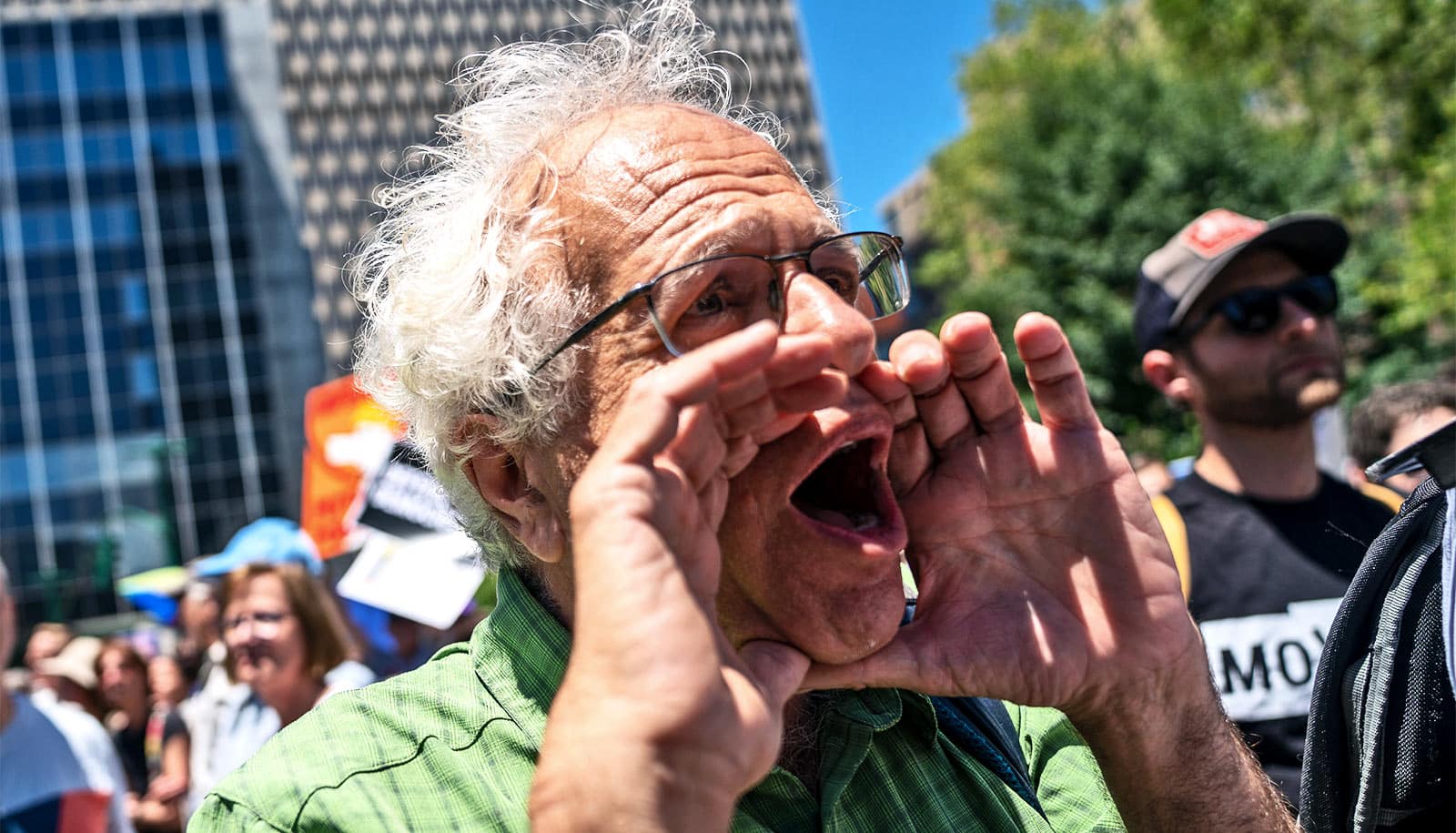Republicans and Democrats use different language when discussing mass shootings on Twitter, according to new research.
The researchers found that Republicans talk more about the shooter and Democrats focus more on the victims. They also found that Republicans tended to concentrate on breaking news reports and on event-specific facts in their tweets while Democrats centered on discussing potential policy changes.
“We live in a very polarized time,” says coauthor Dan Jurafsky, professor of linguistics and of computer science at Stanford University.
“Understanding what different groups of people say and why is the first step in determining how we can help bring people together. This research can also help us figure out how polarization spreads and how it changes over time.”
Fear vs. sadness
Researchers examined 4.4 million tweets posted in response to 21 different mass shooting events, including the Orlando nightclub shooting in 2016, to determine what words and emotions people with different political leanings expressed.
They found that Republicans more likely expressed fear and disgust in their tweets than Democrats, who more likely communicated sadness and calls for action.
Republicans were also 25 percent more likely than Democrats to write “terrorist” in tweets about the shootings when the shooter was African American, Hispanic, or Middle Eastern. Democrats were 25 percent more likely to use the same word when they tweeted about shootings in which the shooter was white.
3 questions
The researchers launched the study because they had three main questions: What is different about how Democrats and Republicans talk on Twitter? Could Republicans or Democrats be identified based on particular words they use in their tweets? How could these differences help understand the causes and consequences of social media polarization?
“As soon as an event like a mass shooting happens, people react very differently right away.”
To answer those questions, they used a method that determines the degree of polarization in speech, which researchers previously used to examine the speech of members of Congress.
The researchers applied the method and a language processing framework they created to a database of 4.4 million tweets about 21 mass shooting events that happened between 2015 and 2018. The researchers excluded retweets. They determined whether a Twitter user was a Republican or Democrat by analyzing if they followed more Republican or Democratic politicians’ accounts.
Researchers chose to focus on responses to mass shootings because “they are events with objective facts, the meanings of which people twist in different ways,” says lead author Dora Demszky, a linguistics graduate student.
Speedy division on Twitter
Researchers found that when people mentioned an earlier shooting as a way to contextualize the new shooting, Democrats were 2.7 times more likely than Republicans to mention a previous school shooting, most often the 2012 Sandy Hook Elementary School shooting. But Republicans were 2.5 times more likely to mention an event of mass violence that involved a perpetrator who was a person of color, which most often involved a mention of the September 11 attacks.
Researchers saw that the degree of polarization in the tweets increased over time in the hours and days following the events. For the three events where there was sufficient long-term data to draw conclusions, polarization plateaued usually after about three to four days, Demszky says.
“Ideological polarization happens very fast,” Demszky says. “As soon as an event like a mass shooting happens, people react very differently right away. This research gives a large-scale insight into how polarization works linguistically.”
Among other findings, researchers found that Democrats were more likely than Republicans to use phrases like “need to,” “should,” “have to,” and “must” as part of their calls for political action.
The study also confirms previous research showing the relationship between people’s beliefs, personalities, and worldviews. The new study reveals that people with different political leanings express different emotions.
While some of the difference in speech patterns between Republicans and Democrats may be intuitive, the new study is one of the first to quantify polarization of language on social media in the hours and days after major events, the researchers say.
“In order to think about how we could fix the echo chambers that social media creates, we need data on how polarization happens,” Demszky says.
Further research is needed to understand the linguistic differences among Republicans and Democrats. One limitation of the new study is that researchers categorized each Twitter user they analyzed as either Republican or Democrat rather than locating them along an ideological spectrum.
Demszky says she hopes that talking about language bias helps in and of itself. “It’s easy to not reflect on the words you use daily,” Demszky says. “But I think it’s a good step forward if people are just aware of their own biases.”
The researchers presented their paper at the 2019 Annual Conference of the North American Chapter of the Association for Computational Linguistics. Additional coauthors are from Stanford and Brown.
Source: Stanford University



